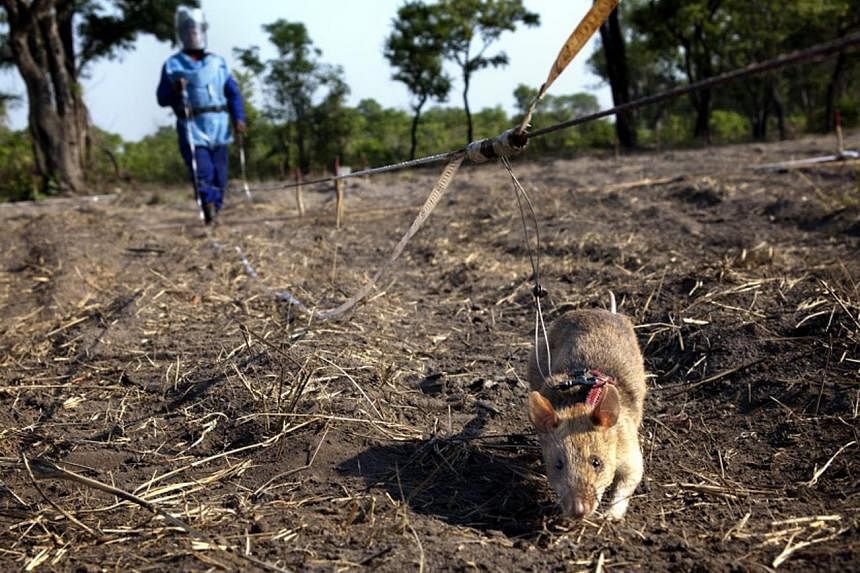AT A laboratory in Morogoro, Tanzania, an African giant pouched rat named Vidic is navigating a row of 10 holes in the base of a glass cage, under which lie trays of human sputum samples.
Stopping at one hole, he repeatedly scratches it, sending a signal to his human observers. He has detected the scent of the bacterium that causes tuberculosis (TB).
Rats are widely seen as pests in Africa, hated for the damage they do to crops and food stocks.
But Apopo, a Belgian non-governmental organisation, is changing perceptions of these rodents by training them to sniff out two lethal dangers: Landmines and TB.
Product designer Bart Weetjens was researching the issue of landmines in Africa in 1995 when he saw a publication about using gerbils to detect explosives.
Having kept rodents as a child, he knew about their acute sense of smell, intelligence and ability to learn. So that gave him the idea of using rats in de-mining operations.
He went on to develop Apopo through a partnership with the Sokoine University of Agriculture in Morogoro.
Apopo's landmine detection rats receive their daily training on an expansive tract of land on the university campus, kitted out in miniharnesses attached to ropes. Training starts at 7am to protect them from the hot sun.
As their handlers guide them between markers, the rats stop and scratch at the ground when they pick up the scent of TNT. They are rewarded with snacks for identifying their targets.
Weighing just over 1kg on average, the giant rats are too light to set off mines, unlike dogs. They also tend to be very focused.
"One rat can clear 200 sq m in just 20 minutes," said training supervisor Lawrence Kombani. "It's a task that will take a human using a metal detector some 25 hours to complete."
Over nine months of training, the rats pass various trials before progressing to live minefields.
The method has been highly effective.
Since 2006, Apopo says that its rats have helped to clear nearly 18 million sq m of explosive devices in Mozambique, Angola, Thailand, Cambodia and Laos.
Since 2007, Apopo's rats have also been tackling tuberculosis. Mr Weetjens found inspiration for this initiative while reflecting on the Dutch word for tuberculosis - "tering", which refers to the smell of tar.
Trials began in 2002, and after a successful pilot, Apopo got seed funding from the World Bank.
Apopo now collects samples from 24 clinics in Morogoro and Dar es Salaam. Two years ago, the programme was replicated in Mozambique.
At just five weeks old, Vidic and his 30 fellow TBdetection rats work with TB samples which are sterilised to inactivate the harmful pathogens, but not their odour. Samples which Vidic suggests are positive are then retested via microscopy.
A rat can clear 70 samples within 10 minutes, or faster than a lab technician using standard microscopy.
The rats can work effectively for around seven years.
Apopo is undergoing accuracy tests in a bid to convince the World Health Organisation to accredit the technique.
The NGO said the rats detected an additional 39 per cent of cases that were initially found negative by screening at health clinics, or 1,412 cases last year alone.
Quality control supervisor Haruni Ramadhani said: "Mycobacterium tuberculosis can hide from the microscope lens but cannot disguise the odour it produces from our rats."
TESS ABBOTT AND SONGA WA SONGA/SPARKNEWS

